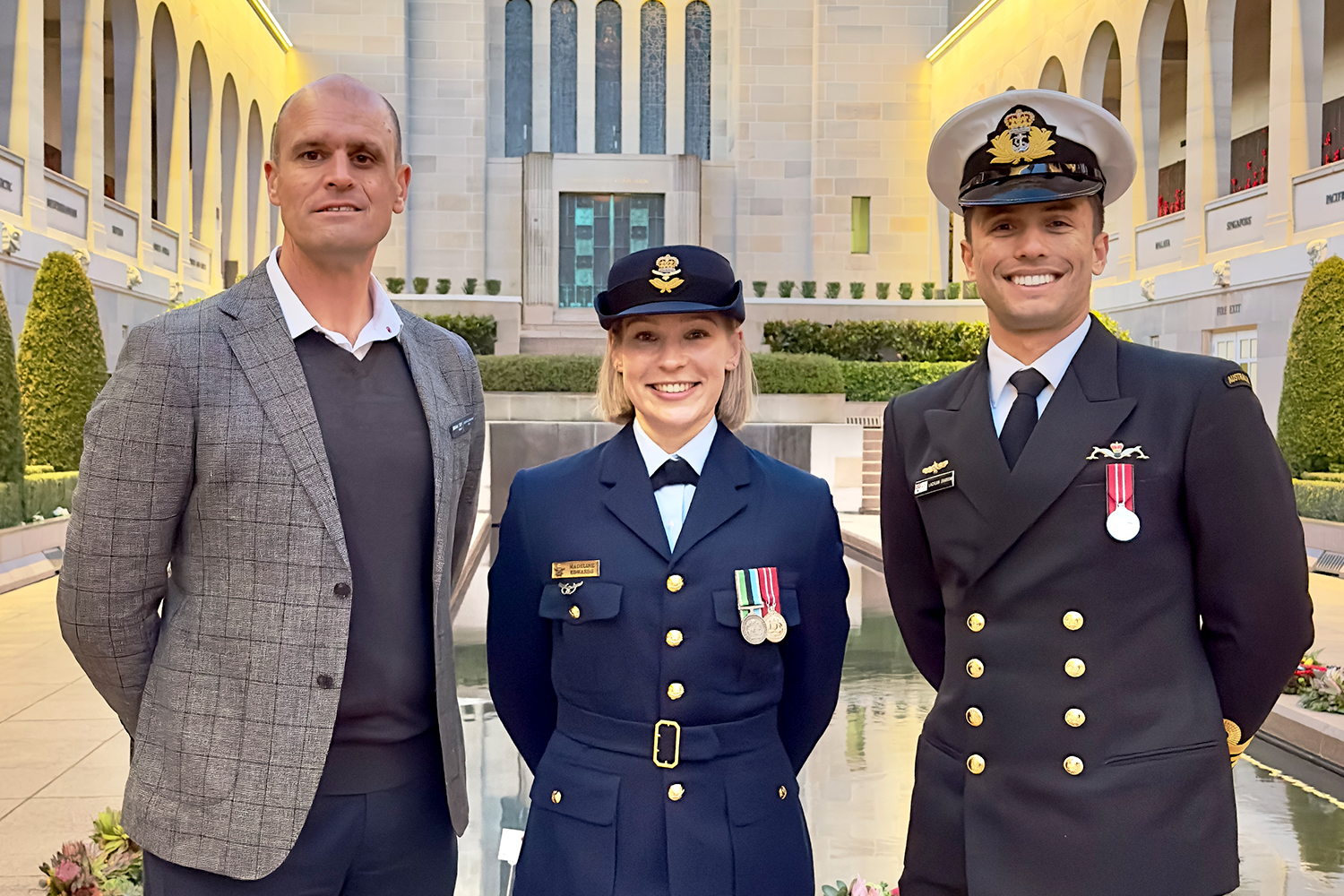Article published in the Herald Sun by Suzan Delibasic.
How a ‘broken’ system has left Aussie veterans forgotten
Afghan veteran Phil Hodgkiss is haunted by the feeling of two bullets piercing his back.
For more than a decade after the terrifying incident, he relived the ambush by the Taliban, waking up from nightmares disoriented and covered in sweat.
The veteran, 36, from Ringwood in Melbourne’s outer east, was a lead scout in Afghanistan in 2007 and 2009 during the summer fighting seasons, providing security for Reconstruction Task Force 2.
He recalls falling to the ground after being shot through his body armour in the Baluchi Valley in the Uruzgan province.
“We were working with Australian combat engineers and an attachment of the Afghan National Army in 2007 and had received intelligence that there was an enemy force,” Mr Hodgkiss said.
“We decided to go on the offensive first and two Taliban machine gunners fired bullets from behind, with two of the bullets hitting my body armour.
“I remember falling to the ground and I could taste metal; it’s something I’ll never forget.”
Mr Hodgkiss said the suicide of his mate Jesse Bird in 2017, a fellow veteran, and witnessing other shocking incidents including suicide bombers, had caused his health to spiral.
“I started noticing that things weren’t OK, I was misusing alcohol and I wasn’t sleeping at all,” he said. “I was having night terrors and I was too terrified to sleep. I would drink myself to sleep so I wouldn’t dream at all.
“It was clear I had PTSD, I wasn’t suicidal and I’ve never been at risk of self-harm, but I had lost control of my world.”
As his condition deteriorated in late 2017, he attended the Austin Hospital’s emergency department, where he says a nurse prescribed two antipsychotic tablets.
“I was told to go home despite the fact that I needed help,” he said.
“Later on I learnt that the Austin Hospital was directly linked to the Austin Repatriation
Hospital where Ward 17 is and looking back on that now had there been some sort of triage and referral service, it would have accelerated my diagnosis and treatment.”
Mr Hodgkiss said the new generation of Australian veterans, who served in East Timor and Afghanistan, had been “neglected”.
“We need more mental health support on a state and federal level,” he said. “There needs to be an increase in funding from the federal government because the state government can’t do things without money.”
Another veteran, 52, who asked not to be identified, worked as a helicopter crewman and in several other roles in the Australian Defence Force for more than three decades. He vividly remembers being involved in a Black Hawk helicopter disaster in 1996.
Two Black Hawks collided mid-air and crashed during a counter-terrorism training exercise near Townsville, killing 18 men.
“I was the closest eyewitness in the third aircraft on the left-hand side and I saw the whole incident unfold,” he said.
“I’ll never forget seeing the whole aircraft spin past us like a big fireball and smash into the ground.”
He said a devastating number of veterans continued to face mental health and financial issues.
“The system is clearly broken and I think the younger veterans and even those who served in Vietnam were forgotten, too. They didn’t even get to march when they came home.
“More needs to be done to assist with transitioning back to the community. I was suicidal and
I thought my kids would be better off without me.”
Andy McRae, 47, who served as a rifleman for the Royal Australian Regiment from 1993 to 1999, said he had felt “isolated” and struggled with his mental health for years after leaving the army.
“I really struggled and I know others do, too, because you feel like you’re part of a tight-knit unit and when you leave you’re on your own with no support,” he said.
Mr McRae said the system had failed him: “It’s only until I met Mick Quinn from the Veterans’ Advocacy Centre in 2012 that I was supported with the right services.”
Veteran advocate John McNeill, 39, who started Aussie Veterans Coffee Co when he was discharged from the army in 2009 after serving as rifleman in East Timor, said he had also struggled with his mental health.
“The catalyst of my declining mental health was having people questioning me, saying it was all in my head, which clearly wasn’t the case,” Mr McNeill said.
“As soon as I got that specialist intervention, they diagnosed my physical condition within 20 minutes.”
Mr McNeill said veterans desperately needed better access to acute care services.
“We need more acute care for veterans who are in crisis because at the moment they are told to go to emergency departments and that’s not where they belong.
“There needs to be a formal working group established to really design how this acute system should look because currently with the wards, the current treatment path is for more people that are further along in the journey.”
Our veterans slipping through the cracks
Young Victorian veterans are slipping through the cracks due to a lack of mental health support, with ex-service community leaders warning soldiers that served in the past decade are being “forgotten”.
The Sunday Herald Sun can reveal Bravery Trust, which provides emergency financial relief and counselling to serving and ex-service members, has experienced a surge in support calls from veterans.
Bravery Trust chief executive Belinda Wilson said the number of contacts to the organisation, which includes emails, phone calls and online inquiries, was 426 per cent higher in June 2022 compared to June 2020.
The data revealed 70 per cent of veterans reaching out for financial assistance were under 50 years old, while 88 per cent had experienced mental health concerns, which has grown from 75 per cent three years ago.
“The majority of veterans we assist are experiencing PTSD, and 1 in 5 have reported experiencing suicidal ideations,” Ms Wilson said.
Veteran support worker Jarrod Michael, who served in East Timor and Solomon Islands as a pilot, said young veterans needed urgent mental health support.
“They are forgotten, when you think of veterans, you think of World War II and Vietnam, it’s a new mindset to consider that veterans may have served in Timor in ’99 onwards or Afghanistan multiple times,” Mr Michael said.
He said there needed to be “boots on the ground” to offer urgent support for veterans.
“There needs to be support workers attending residences and talking down veterans from heightened levels of anxiety and stress.
“RSLs need funding to provide full time welfare officers, with vehicles who can attend with a basic skill level like a diploma in counselling or the type of training that’s provided by Police Veterans Victoria to intervene.”
Mr Michael has also written a lengthy police statement seen by the Sunday Herald Sun, detailing his horrific encounter with a veteran who was attempting suicide.
“This is how dire the situation has become and thankfully myself and police were able to assist in this situation, but it was confronting.
“You can’t save them all and it’s unfortunate that I wasn’t able to prevent that event, however, there was a good outcome with the veteran’s life being saved and he has a second opportunity to reconnect with his family.”
Veteran and former Hawthorn RSL president, Lucas Moon, who served in the army for 14 years, said young veterans had been forgotten for health care.
“The generation that has fought more wars and conflicts than any before and the proven repatriation and compensation system we had was dismantled for an inferior system of compensation and non-specific medical care delivered by state governments that comes with no KPI’s or care factor,” Mr Moon said.
Mr Moon, who is the Liberal Candidate for Richmond in the upcoming state election, said he supported a Liberals and Nationals Government pledge to reinstate the high dependency beds with specialised support in Austin Health’s Ward 17 in Heidelberg.
“The pledge will save lives. Veterans have asked repeatedly for 24/7 care to be reinstated at Ward 17 and been ignored by bureaucratic excuses,” he said.
Mr Moon said the modern generation of veterans is the first in our history to have acute crisis care denied to them.
“The resources their great-grandparents, grandparents, and parents had access to are not available to those who’ve served in East Timor, Iraq, Afghanistan, as well as a dozen other places around the world and on domestic operations.”
Police Veterans Victoria volunteer Naomi Oakley, whose partner is also an army veteran, said: “Veterans and their families need all the assistance they can get and I hope our governments hear those cries for help.”
A state government spokeswoman said: “We have always backed our veterans and will always consider proposals to improve their mental health and wellbeing – led by clinical advice, demand data and system planning.”
“The Labor Government’s $801 million Mental Health Beds Expansion Program is delivering 260 new mental health inpatient beds across Victoria,” she said.
Mental health support is available
If you or someone you know needs assistance:
Lifeline on 13 11 14 or www.lifeline.org.au
Beyond Blue 1300 224 636 or at www.beyondblue.org.au








